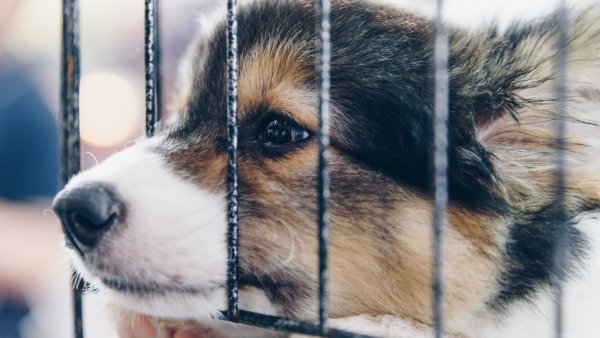Victoria Becomes The First Australian State To Ban Puppy Mills
 By Amanda Froelich Truth Theory
By Amanda Froelich Truth Theory
Good news! The state of Victoria is now the first in Australia to ban puppy mills. For those who are not familiar with the term, a puppy mill is a large-scale commercial dog breeding facility where profit is generally placed above the wellbeing of animals.
Sadly, it is not uncommon for the canines in puppy mills to be mistreated or malnourished. According to the ASPCA, the number of dogs in a puppy mill varies significantly. It can range from 10 to 1,000 dogs. Because puppy mills are not licensed and inspected, it is impossible to know the exact number.
To maximize revenue, female dogs are bred at every opportunity. They rarely receive recovery time between litters and when they can no longer reproduce, they are killed. Any puppies born with overt physical problems are likely to be put down, as well. To learn about the additional horrors of puppy mills, click here. For now, let’s celebrate this latest news.
Last Friday, laws to ban puppy farming passed Victorian parliament. As a result, the number of dogs that breeders are allowed to keep will be limited. As SBS News reports, pet stores are now prohibited from selling puppies which were sourced from puppy mills. Instead, pet stores are to become adoption centers for rescue dogs.
The animal rights group Oscar’s Law, which championed the bill, applauded the development. Said Debra Tranter, the founder of Oscar’s Law: “Today’s an incredible victory. For the first time anywhere in Australia we’ve got a cap on the number of dogs that puppy farms are allowed to keep.”
“It’s the end of the days where we see literally hundreds of dogs lined up in sheds, pumping out puppies for the pet market,” Tranter added.
From April 2020, breeders will be able to keep a maximum of 50 female dogs which are capable of becoming pregnant. Breeders found to have more than 10 female dogs will need to seek ministerial approval; they may also be subject to stricter regulations.
The reforms also demand that anyone selling a pet must also provide a registered source number. This is to show where the animal was bred. “If we don’t know where a kitten or pup was bred, we can’t possibly know what conditions they or their mum have been living in,” said RSPCA chief executive Liz Walker.
What are your thoughts? Please comment below and share this news!
Read more: Pet Store Secretly Replaces All Animals With Rescues — And Nobody Noticed [Video]
Image Credit: Copyright: pongmoji / 123RF Stock Photo
Leave Comment: